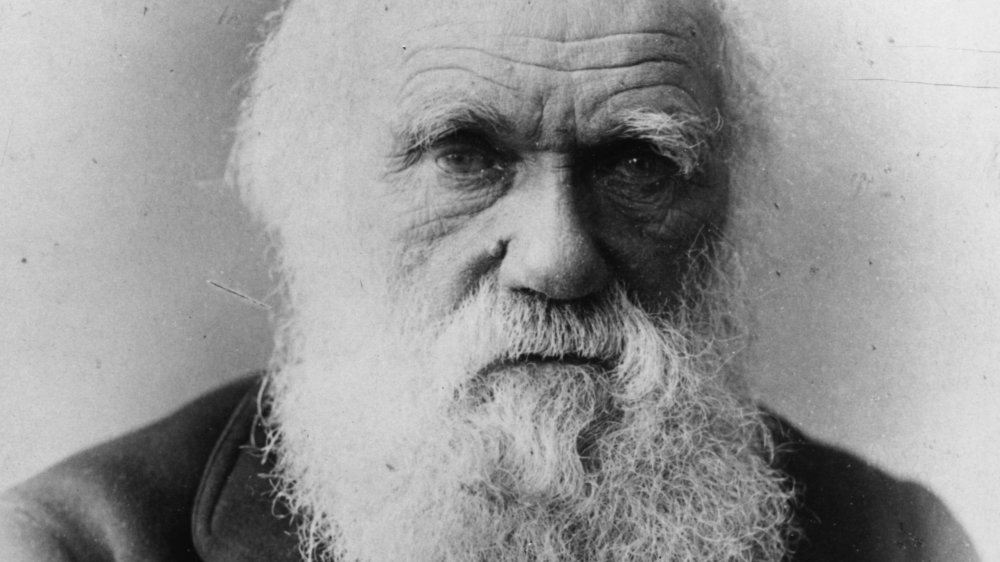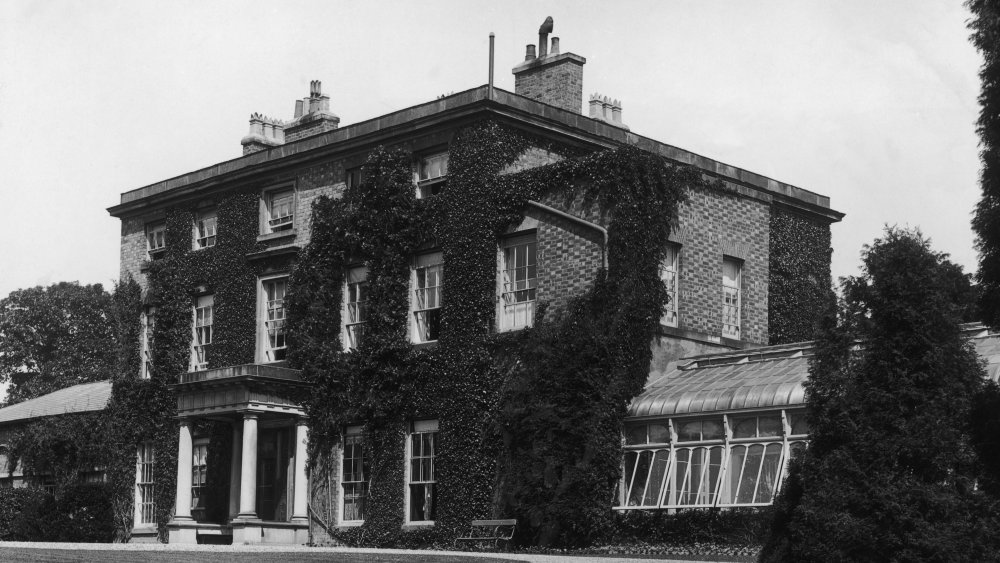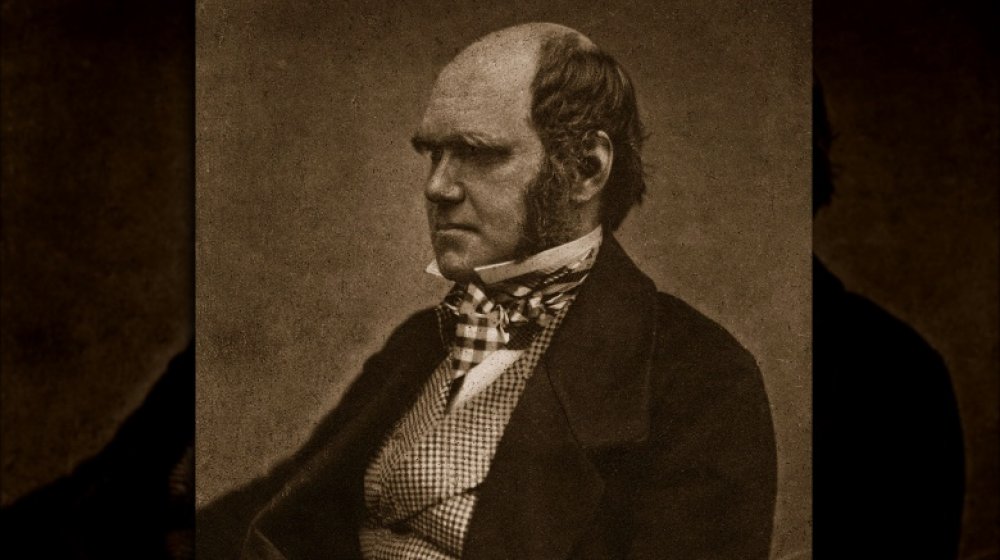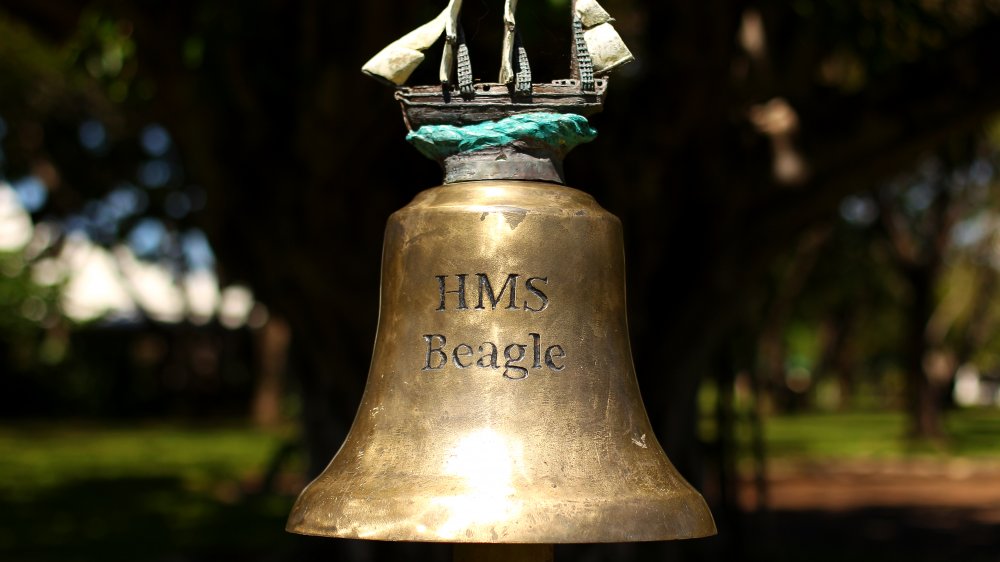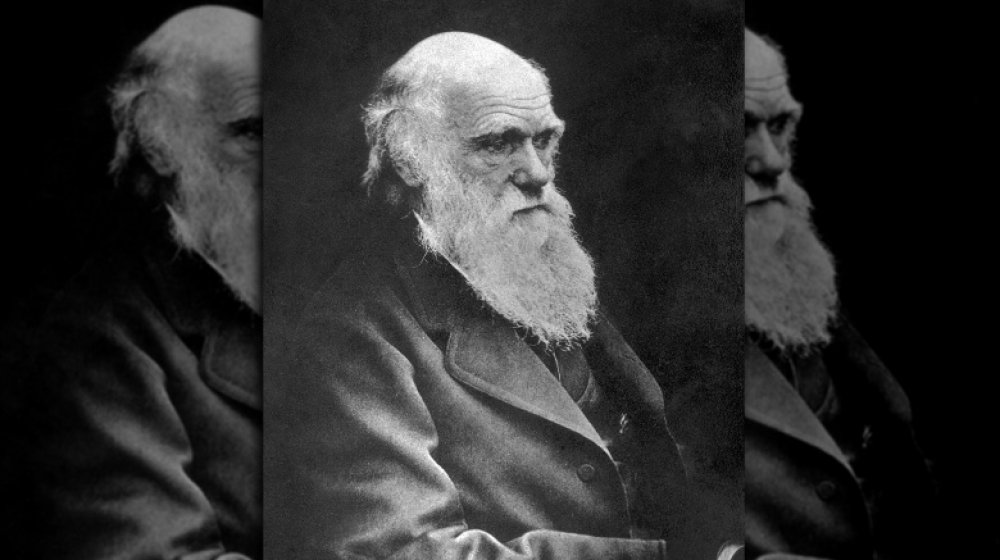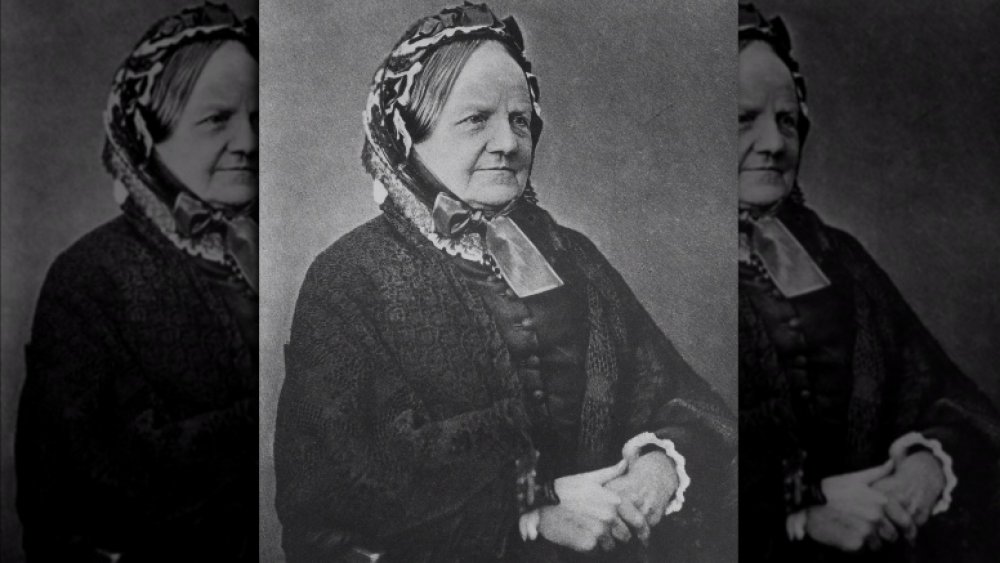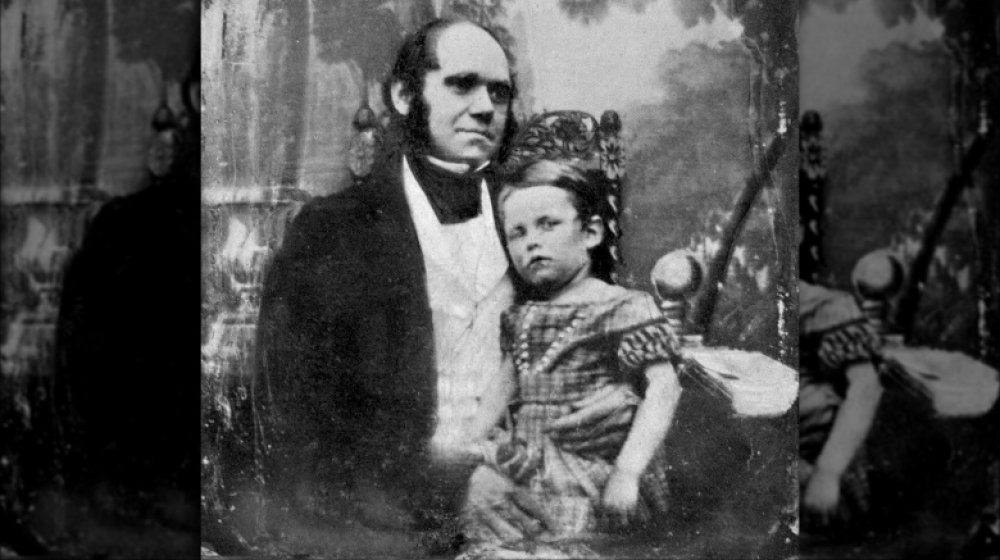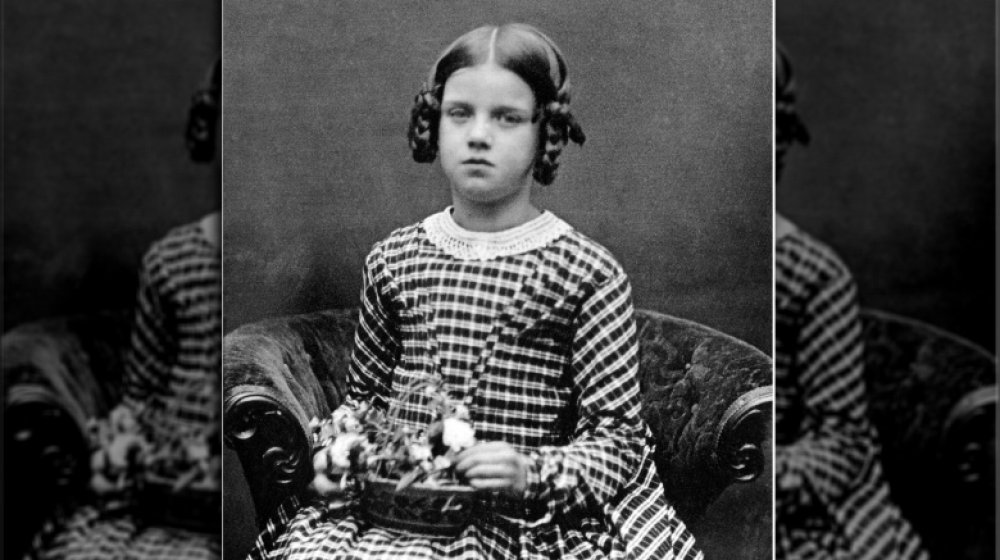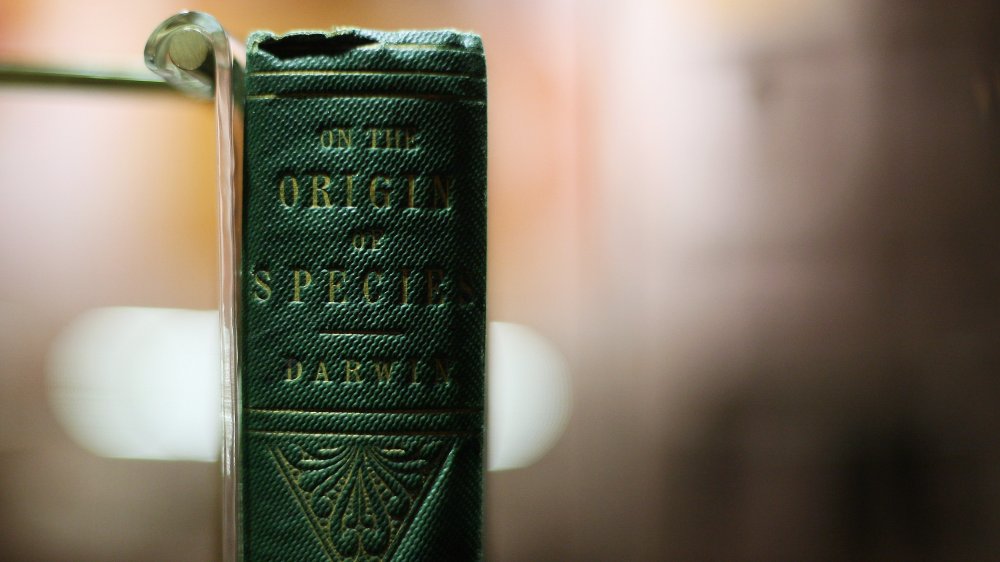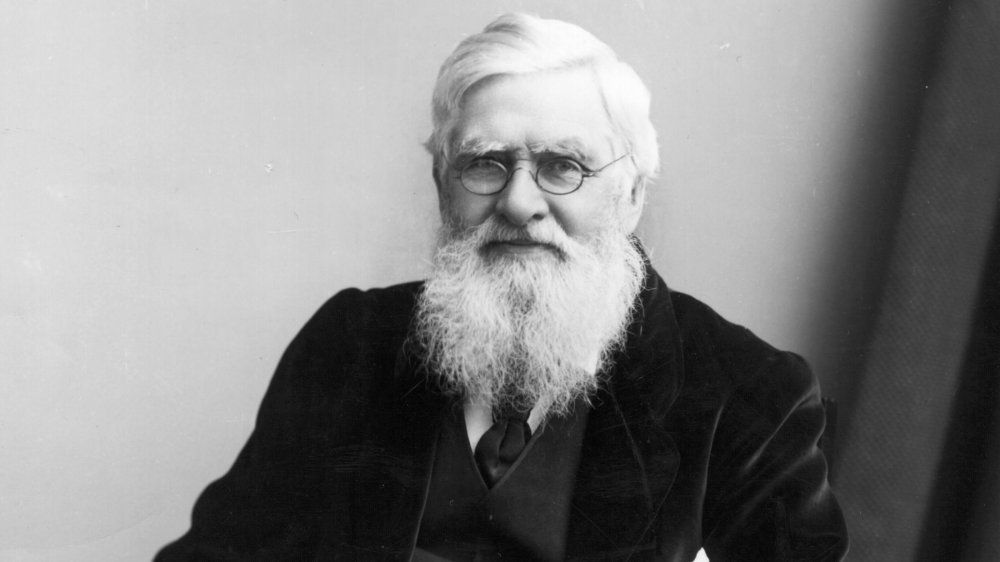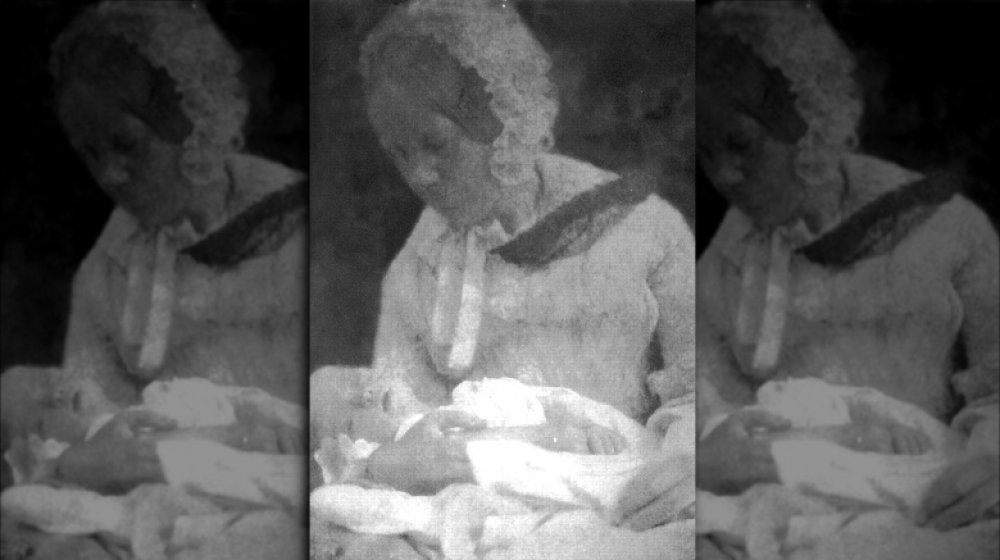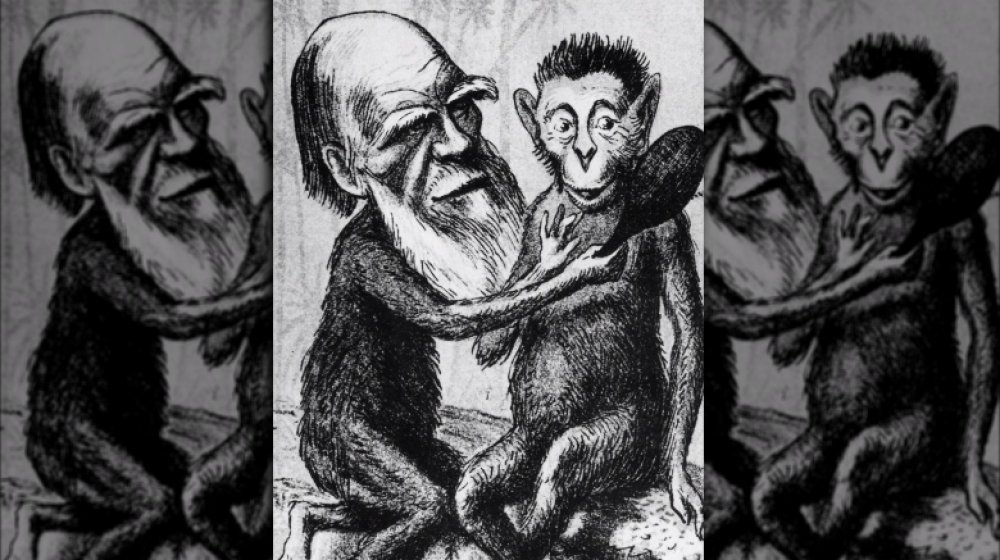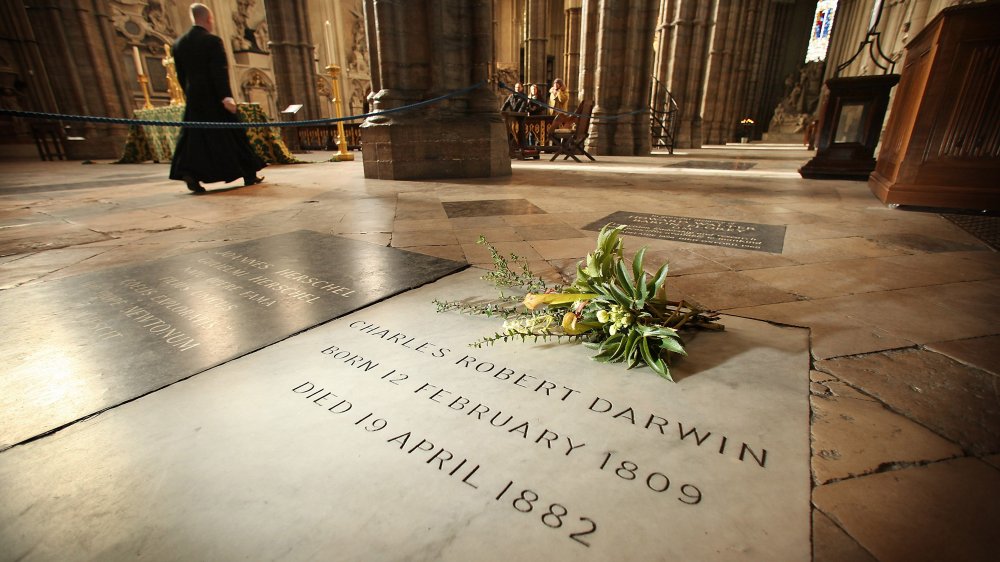The Tragic Life Of Charles Darwin
You know Charles Darwin as the father of evolution. You might also know him as a great icon of scientific thinking or possibly the blasphemous destroyer of religion or the inspiration for those awards that you're always secretly laughing at that you totally shouldn't be laughing at. But Darwin was so much more than just a scientist or a blasphemer or the name of an award given to people who kill themselves in idiotic ways.
Charles Darwin was a complex person who lived a life of tragedy, suffering, and self-doubt. He didn't present his famous (or infamous, depending on where you fall on the scale of atheist to religious) theory with the confidence and smugness you might expect to see in a dude who'd just disproven one of western religion's most beloved stories. On the contrary, Charles Darwin was deeply troubled by his own theories, so troubled that he sat quietly on them for decades before he finally decided to publish them. Here's the long, sad tale of Charles Darwin.
Charles Darwin's mother died when he was young
The first tragedy of Charles Darwin's life happened when he was just eight years old. According to The Guardian, his mother died from "severe abdominal pain," though this was before every disease had a diagnosis and every corpse had a cause of death, so history won't ever be certain what the cause of her illness actually was. Some historians theorize that she suffered from a form of cyclical vomiting syndrome, which is a genetic disorder that causes chronic episodes of vomiting without any apparent cause. Darwin's mother and some of her family all seemed to suffer from weak stomachs, and while cyclical vomiting syndrome isn't usually fatal by itself, sufferers may experience severe dehydration or other potentially dangerous complications.
After his mother's death, Darwin's care was taken over by his older sisters, who were mother figures to him but were also deeply critical. Their constant harsh criticism may have had an influence on Darwin that persisted into adulthood. His desire to protect himself from criticism informed a lot of the choices he made throughout his life, and though it probably wasn't the only reason he delayed publication of his most famous work, it almost certainly played a role. After all, it's not like he was releasing a new single or something. He was basically telling everyone in the Christian world that everything they believed was wrong. To do that, you have to have a much thicker-than-average skin.
His father was deeply disappointed in him
In Darwin's time, it was common for parents to expect their children to take over the family business or learn the family profession, and kids who deviated from those expectations often went on to become disappointments to their parents.
Charles Darwin's father was a successful physician who never doubted his son would go on to medical school and also become a successful physician. But according to the New Statesman, Darwin only did the first of those things. Sort of. He did indeed enter Edinburgh University with the intent to become a physician, but he abandoned his studies when he realized that a medical career wasn't super compatible with not being able to stand the sight of blood. After that, Darwin obtained a bachelor's degree from Cambridge in preparation for joining the clergy, but we all know how that worked out for him.
Robert Darwin was horrified by his son's academic failures but even more so by the fact that Charles liked to collect beetles and study botany and geology, which seemed to him like the pastimes of a slacker or whatever the 19th-century version of a slacker was. "You care for nothing but shooting, dogs and rat-catching," his father wrote in a not-very-fatherly letter to his son. "You will be a disgrace to yourself and all your family." Hey Robert Darwin, guess what, everyone remembers your kid, and no one remembers you. Who's the disgrace now?
Charles Darwin was chronically ill for most of his adult life
Cyclical vomiting syndrome is thought to be genetic, and by the time Charles Darwin was a young man, he was suffering from bouts of illness similar to what his mother had experienced. According to History, his suffering only escalated as he got older, and eczema, vertigo, joint pain, boils, and various other unpleasantries were added to his list of complaints.
Sometimes, Darwin's symptoms led him to self-isolate from the rest of the world, but at other times, he was surprisingly resilient. In fact, he deliberately declined to obtain a doctor's opinion prior to his famous voyage on board the Beagle (where Darwin's theory of evolution was seeded) for fear of being told he should stay home. "I was ... troubled with palpitations and pain about the heart," he wrote in his diary. "Like many a young ignorant man, especially one with a smattering of medical knowledge, [I] was convinced I had heart disease. I did not consult any doctor, as I fully expected to hear the verdict that I was not fit for the voyage."
Darwin boarded the ship in spite of his physical ailments, and we're all grateful that he did, because if he hadn't made the voyage we wouldn't have the annual Darwin awards or that Scopes Monkey Trial play that everyone has to read in the sixth grade. Oh, and the theory of evolution, we wouldn't have that, either. Thanks for persevering, Charles.
He suffered from mental ailments
Darwin had bouts of physical illness throughout his life, but he also suffered from anxiety. According to Live Science, some historians think his physical ailments may have been psychosomatic, or in other words, they might've been aggravated by anxiety and a difficulty coping with stress.
We don't really know the full story about Darwin's relationship with his father, but it's likely to have contributed to his anxiety. Even as Darwin was drawn away from a career as a physician, he still had a deep desire to obtain his father's approval. So when Robert Darwin died in 1848, his son experienced something like a nervous breakdown. Gail Saltz, a professor of psychiatry at the New York Presbyterian Hospital Weill-Cornell School of Medicine, thinks Darwin may have also suffered from depression. "After his father's death, Charles goes through a period where he's really not well. ... There was [also] a long period where he had these ideas, had written these ideas, but didn't publish them. Sometimes we see that production is blocked with patients are depressed."
Now, it's pretty clear that the reasons behind the decades-long delay between Darwin's voyage on the Beagle and the publication of On the Origin of Species were more complex than a long bout of depression, but it's also obvious that Darwin was fighting some internal demons during those years.
Charles Darwin's wife was afraid he was going to hell
During the 1800s, science was starting to emerge as something one could partake in without getting burned at the stake, but religion still pretty much eclipsed science in the hearts and minds of most people, including Darwin's own wife. According to NPR, Emma Darwin was a devout Christian, and her husband's not-especially-devout ideas bothered her, and not just in a "I have to go to church by myself" kind of way. Emma Darwin believed that love transcended death — as long as both parties were Christian, of course. Because if one party was Christian and the other was the blasphemous destroyer of religion, then there's no way they were going to be reunited in heaven. She feared for her husband's soul, but mostly she worried that she wouldn't be able to spend eternity with him because he'd be in hell, walking around barefoot on hot coals, and she'd be in heaven playing the harp and eating cream puffs all day.
Darwin may not have been as devout as his wife, but her concerns were very real, and Darwin wasn't the kind of guy who would just dismiss them as silly superstitions. Darwin loved his wife, and it's likely that one of the many reasons why it took him so long to publish On the Origin of Species was because he worried about the effect it would have on her.
His wife was also his first cousin
Charles Darwin lived during a time when people could marry their first cousins, and no one thought that was weird. According to Scientific American, Darwin's wife Emma was the daughter of his mother's brother — in other words, his first cousin. Their union was ironic because Darwin was starting to understand the risks of having children with someone who's genetically close to you. Much of the research he did while developing his theory of evolution involved crossbreeding and inbreeding, and he could see with his own eyes that inbreeding often produced offspring that were weaker than their parents. This was deeply troubling to him, and he even wrote to a friend about his concerns, noting that his children (one of whom is pictured above) were "not very robust."
Inbreeding can cause obvious genetic abnormalities, but it can also cause insidious problems beneath the surface. People who have parents who are closely related to each other may be more prone to contracting infectious diseases — and three of Darwin's children died from infectious diseases before they reached their teenage years.
His oldest daughter died just after her tenth birthday
Charles and Emma Darwin lost two children in infancy — one died at just 23 days old, and another died at 18 months. According to NPR, though, it was the death of Darwin's oldest daughter that had the most profound effect on him. Annie Darwin was just ten when she died from what was probably tuberculosis. "We have lost the joy of the Household," Darwin wrote, "and the solace of our old age." He was so stricken with grief that he couldn't bring himself to attend her burial.
Darwin seems to have an epiphany after Annie's death, but instead of renouncing his scientific ideas and turning to religion for comfort, he appeares to have found comfort in those scientific ideas instead. In On the Origin of Species, which was published eight years after Annie's death, Darwin wrote poetically about the circle of life, and how the endless struggle and pains of evolving species eventually led to human beings, creatures who are capable of contemplating life and appreciating beauty. He seems to have found some solace in the idea that death, as awful as it is, is also solely responsible for the world's diversity and beauty.
On the Origin of Species made Charles Darwin feel guilty
When you're the blasphemous destroyer of religion, do you chortle maniacally at the despair of the formerly devout, or do you feel a sense of responsibility or maybe even remorse that although you're not robbing anyone of their life, exactly, you might be robbing them of their afterlife? Darwin once said that writing On the Origin of Species was "as if one were confessing to a murder."
According to Scientific American, Darwin's theories erased his personal belief in the biblical creation story. The ideas pretty much excluded God as a participant in the making of the world's creatures. After all, if species were a result of a messy process of fit and unfit, then there was clearly nothing divine in the way that life on Earth came about. And if human beings weren't created by God, then they were also not accountable to him. In Darwin's time, that wasn't the sort of stuff you said out loud unless you were prepared for the consequences.
Darwin's rejection of the creation story didn't make him smug, either. In fact, it troubled him so much that he confessed it to his future wife before he married her, because he feared that it would "be a painful rift between us." His discovery of something that would possibly rob people of the comfort of religion was not something he took lightly. Quite the opposite, it was a lifelong weight on his conscience.
Someone else nearly became the father of evolution
The theory of evolution is one of the most important scientific ideas in history, and yet it took Darwin 20 years before he felt ready to show it to the public. And when he finally did, it wasn't because he'd come to terms with what the theory might do when it was released into the world, at least not completely. It was because it became clear that if he didn't do it, someone else would beat him to it.
According to the BBC, in 1858, Darwin received a letter from a scientist named Alfred Russel Wallace. Wallace was inspired by Darwin to go on his own Beagle-like journey, and during his travels, he'd independently arrived at his own theory of natural selection. He wrote to Darwin to ask for advice on how to publish his ideas, which left Darwin with a problem. Should he rush to publish his theory before Wallace got there first, or should he let Wallace take credit for an idea he'd held onto for 20 years?
Despite the whole destroyer-of-religion thing, Darwin was actually a pretty stand-up guy. He decided that excerpts from both Wallace's work and his own would be presented at a meeting of the Linnean Society, Britain's top natural history body. Even so, it's Darwin we remember as "the father of evolution," and Wallace has been largely forgotten. It's just as well, though, because "the Wallace Awards" doesn't have quite the same ring.
Charles Darwin lost his infant son two days before his big moment
It was finally happening for Darwin. His theories were about to be presented to the most important natural history organization in Britain, ending 20 years of procrastination. But Darwin wasn't able to attend the presentation, because his 18-month-old son had developed scarlet fever and died just two days earlier. Instead of attending the presentation, Darwin attended his son's funeral.
Charles Waring was Darwin's last child, born when his wife Emma was 48. According to the American Society of Hematology, Charles Jr. wasn't a normal child, although at the time, there was no diagnosis for his condition. Darwin described his son as "small for his age and backward in walking and talking. ... He was of remarkable sweet, placid, and joyful disposition, but had not high spirits."
There's just one known photograph of Charles Waring, but together with Darwin's description of the boy and the advanced maternal age of his mother, modern physicians think he might've had Down syndrome. In Darwin's time, scarlet fever was a potentially deadly disease with a five percent mortality rate. Add to that the part where people with Down syndrome are probably more vulnerable to infectious diseases, and poor Charles Jr. didn't have much of a chance.
Predictably, everyone hated Darwin's theory
Darwin's former patrons at Cambridge weren't super impressed with his work. According to The Lancet, they called it "filthy" and the "baseless vapourings of scientific credulity." It wasn't just the academics who were upset by Darwin's indirect assertion that maybe human beings had evolved from apes, though. It was practically everyone. Reviewers publicly denounced his ideas, and Darwin became a popular subject of derogatory cartoons and the butt of extremely public jokes and insults. Darwin had no stomach for conflict, and he didn't even try to openly defend himself, instead leaving that task to his supporters.
You know the old adage that bad publicity is still publicity? Well, Darwin may have been a villain in the eyes of the devout, but practically everyone was buying his book. The first edition sold out before it was even released. Still, Darwin was sensitive to the criticism and continued to amend the text so it suggested that natural selection, too, was a part of God's design. So in a way, he backed down from his own ideas under the weight of all that negative publicity.
The death of Charles Darwin
Darwin died in old age, which is how most of us would like to die. According to History, his final decline was fairly rapid. He got dizzy one day while rock climbing (which is an impressive thing to do as a 73-year-old) and then continued to worsen over a period of about three months. But despite his doubts about religion (and presumably an afterlife), Darwin seems to have been at peace when his time came. "I am not the least afraid of death," he told his wife. "Remember what a good wife you have been to me. Tell all my children to remember how good they have been to me."
Postmortem diagnoses aren't really possible more than a century after someone's death, but physicians can at least guess at the cause of Darwin's demise. Some think he had Chagas disease, which is an illness transmitted by the bite of an assassin beetle, one of the most dangerous animals in the world. Untreated, Chagas causes heart disease, and Darwin's symptoms were consistent with heart failure.
Darwin died with just his wife and a few friends nearby — not quite a recluse but not so far from reclusiveness, either. He seems to have wanted to be buried in his local cemetery, which he described as "the sweetest place on Earth," but instead, his admirers had him interred at Westminster Abbey. Contrary to the smug rumors that circulated after his death, Darwin did not recant his theories or embrace religion at the end of his life.
